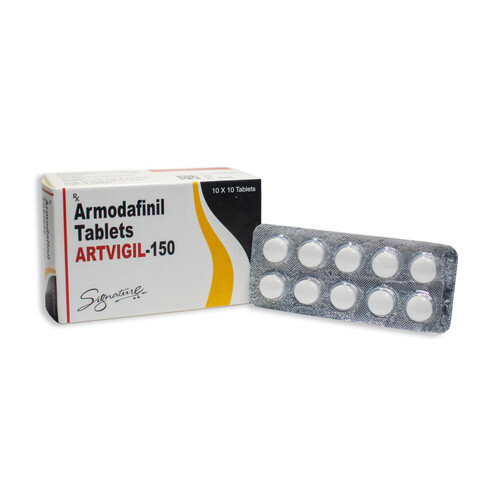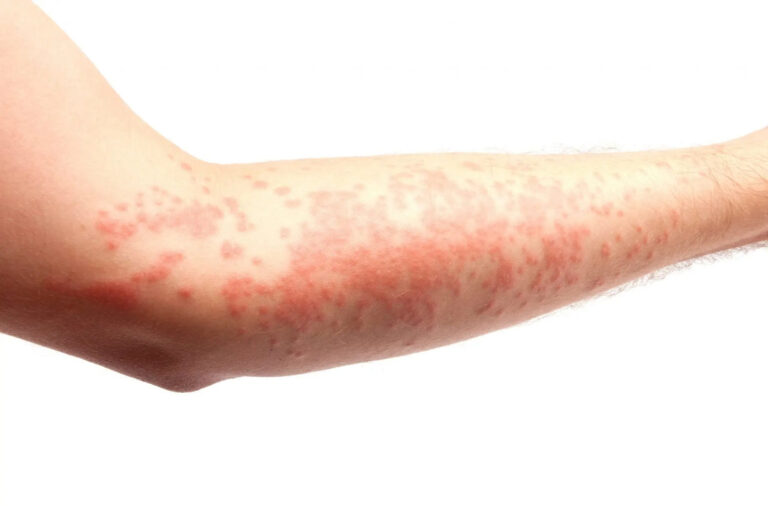Modafinil and Appetite: Does It Really Reduce Hunger?
Modafinil is best known as a prescription medicine for sleep disorders, but many people also notice changes in appetite when taking it. Some studies suggest that modafinil can reduce food intake, while others report that its effects vary between individuals. Understanding what the science says, along with what users report, helps clarify whether modafinil truly suppresses appetite.
Understanding Modafinil
Modafinil is a wakefulness-promoting medicine used for narcolepsy, shift work disorder, and obstructive sleep apnea (U.S. Food and Drug Administration, 2015). It works mainly by blocking the dopamine transporter, which increases dopamine levels in the brain (Greenblatt & Adams, 2023). This action indirectly influences norepinephrine and serotonin systems, both of which can play a role in appetite regulation.
Unlike amphetamines, modafinil has a lower risk of dependence and fewer cardiovascular side effects (Greenblatt & Adams, 2023). These differences have led some to wonder whether it could be a safer alternative for appetite control.
What the Research Says About Appetite
Human studies
In a controlled 23-day laboratory study, participants who took modafinil consumed fewer calories overall. At a 200 milligram dose, daily intake dropped by about 18 percent, and at 400 milligrams, by about 38 percent (Perez et al., 2008). These changes occurred without altering the balance of proteins, fats, or carbohydrates in the diet. Participants also reported feeling less hungry before lunch, and the effect did not wear off across three consecutive days of use.
Other studies comparing modafinil with amphetamines found that both reduced food intake, but modafinil caused fewer side effects such as increased heart rate and blood pressure (Perez et al., 2008).
Common side effects
According to the FDA label, anorexia (loss of appetite) was reported in about 4 percent of patients during clinical trials (U.S. Food and Drug Administration, 2015). StatPearls also lists decreased appetite among the most common side effects, occurring in up to 10 percent of users (Greenblatt & Adams, 2023).
User Reports and Anecdotal Evidence
Many people taking modafinil describe forgetting to eat, skipping meals, or feeling less interested in food. Others report smaller portion sizes or less frequent snacking. While these experiences support the idea that modafinil reduces hunger, not everyone notices this effect. Some users report no significant change in their eating habits.
These accounts can help illustrate the range of experiences but should not replace clinical evidence.
Comparing Modafinil with Other Appetite Control Methods
Appetite is regulated by a complex system of hormones, including leptin, ghrelin, and peptide YY (Freire & Alvarez-Leite, 2020). Diet strategies such as high-protein meals or ketogenic diets can also influence hunger.
Unlike hormone-based weight loss medicines, modafinil’s impact on appetite comes from its effects on brain neurotransmitters. This makes it different from treatments like glucagon-like peptide-1 (GLP-1) agonists, which are widely used in obesity management.
Risks and Considerations
While appetite suppression may be appealing for weight control, modafinil is not approved for this purpose. Using it without medical supervision for weight loss can carry risks, including:
- Unintended weight loss in people who do not need it.
- Nutrient deficiencies if food intake drops too low.
- Side effects such as insomnia, anxiety, or rash (U.S. Food and Drug Administration, 2015).
- Drug interactions, since modafinil can alter how other medicines are processed by the liver (Greenblatt & Adams, 2023).
Individual responses vary. Some people may experience strong appetite suppression, while others notice little or no change.
Practical Takeaways
- Modafinil can reduce hunger and caloric intake in some people, but it is not a weight loss medicine.
- Any appetite-suppressing effect should be monitored carefully to avoid nutritional imbalances.
- A healthcare professional should guide the use of modafinil, especially if appetite changes are significant.
The Bottom Line
Research shows that modafinil can decrease appetite and food intake, with effects confirmed in both studies and patient reports. However, it is not an FDA-approved weight loss treatment, and long-term effects on appetite and body weight remain unclear. For those considering modafinil, consultation with a healthcare provider is essential to ensure safe and appropriate use.
Frequently Asked Questions
Does modafinil help with weight loss?
Some studies show reduced caloric intake, but modafinil is not approved for weight loss. Any weight changes are considered side effects rather than treatment goals (U.S. Food and Drug Administration, 2015).
Is decreased appetite a common side effect?
Yes. Medical sources list decreased appetite or anorexia as common side effects, affecting about 4 to 10 percent of users (U.S. Food and Drug Administration, 2015; Greenblatt & Adams, 2023).
How quickly does modafinil reduce hunger?
In studies, reduced hunger was most noticeable before lunch and began within the first few days of use (Perez et al., 2008).
Can modafinil replace diet or exercise for weight management?
No. Modafinil may affect appetite, but it is not a substitute for a balanced diet and physical activity. Long-term safety for weight loss has not been established (Freire & Alvarez-Leite, 2020).
References
- U.S. Food and Drug Administration. (2015). PROVIGIL® (modafinil) tablets, for oral use, C-IV [Prescribing information]. U.S. Department of Health and Human Services. https://www.accessdata.fda.gov/drugsatfda_docs/label/2015/020717s037s038lbl.pdf
- Greenblatt, K., & Adams, N. (2023). Modafinil. In StatPearls [Internet]. StatPearls Publishing. https://www.ncbi.nlm.nih.gov/books/NBK531476/
- Perez, G. A., Haney, M., Foltin, R. W., & Hart, C. L. (2008). Modafinil decreases food intake in humans subjected to simulated shift work. Pharmacology Biochemistry and Behavior, 90(4), 717–722. https://doi.org/10.1016/j.pbb.2008.05.018
- Freire, R. H., & Alvarez-Leite, J. I. (2020). Appetite control: Hormones or diet strategies? Current Opinion in Clinical Nutrition & Metabolic Care, 23(5), 328–335. https://doi.org/10.1097/MCO.0000000000000675








